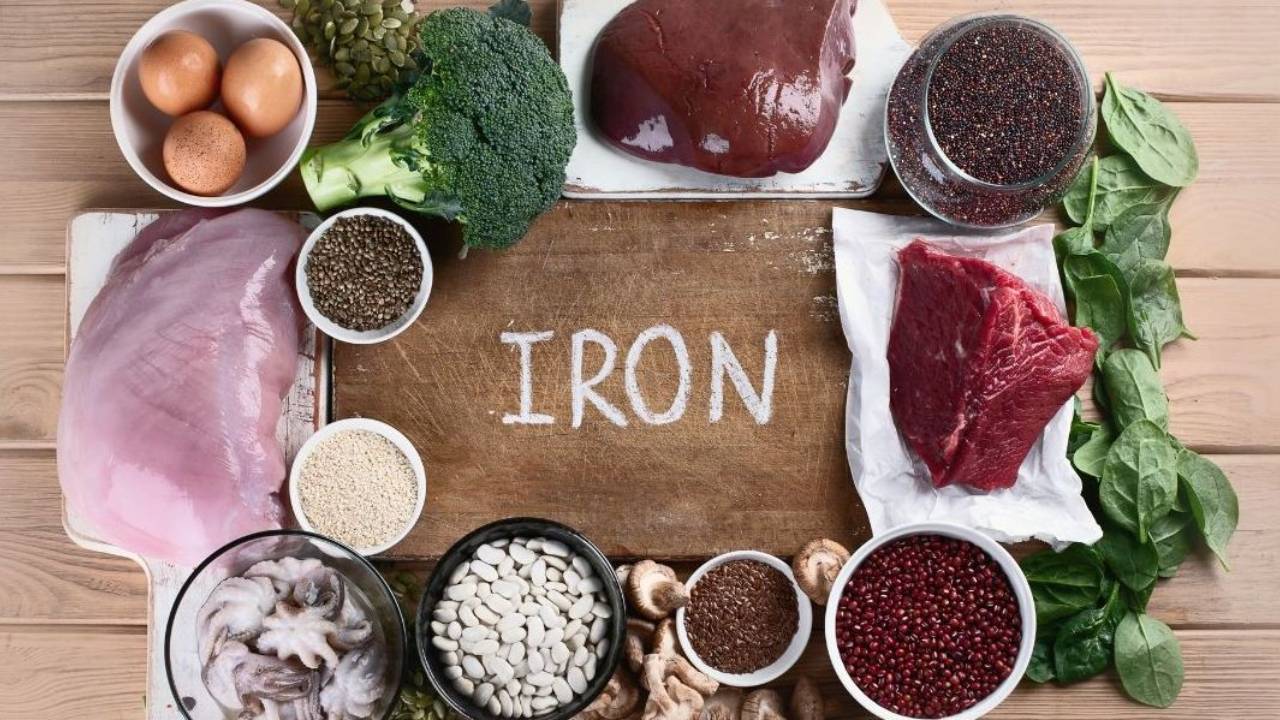Ironing Out the Facts: Anemia & Low Iron in Pregnancy
Oct 15, 2025
In today's episode, Drs. Sarah and Alicia dive into what low iron and anemia in pregnancy really mean, and how they can affect both childbirth and your newborn. They break down how to test your iron levels and share practical recommendations for treating low iron or anemia during pregnancy.
We’re also highlighting a trusted resource we love: Kidstar Nutrients, who make an great iron supplement called BioFe. Use promo code SFH15 for 15% off at kidstarnutrients.com!
Sign up for our Free Birth Preferences Course to ensure you are as prepared as possible for your big day!
What Is Anemia, Really?
In the simplest terms, anemia means your hemoglobin - the part of your red blood cells that carries oxygen - is lower than it should be. When hemoglobin drops, your blood just can’t deliver oxygen to your cells as effectively.
And yes, a certain amount of anemia is actually normal in pregnancy! Your blood volume expands, everything gets a little diluted, and your numbers shift.
That said, some people have a significant drop from their personal baseline without technically falling into the "anemic" range. So if your lab results look "pregnancy normal" but you’re feeling unusually tired, it’s absolutely worth digging deeper.
How Common Is Anemia in Pregnancy?
Pretty common. About 30% of all reproductive-age women are anemic at baseline globally, and during pregnancy that number jumps - the WHO estimates over 40% of pregnant people worldwide are anemic.
But not all anemia is created equal. To know what needs treatment (and what doesn’t), we need to understand the cause:
-
Is it the normal, expected dilution of blood in pregnancy?
-
Iron deficiency?
-
Low B12?
-
Thalassemia or another inherited condition?
We walk through all of this - plus how to test for each type - in the podcast episode.
Iron deficiency is the most common culprit, showing up in about 18% of pregnancies, especially in the third trimester when iron needs peak. It’s also possible to have iron deficiency without anemia, meaning your iron stores are low even if your hemoglobin hasn’t dropped yet.
That’s why it’s so important to recheck your iron mid-pregnancy. Your iron needs rise dramatically as your blood volume expands and as your growing fetus builds red blood cells, tissues, and the placenta.
Treatment depends on your levels and how you tolerate iron: oral iron works well for many, while others benefit from IV iron.
Why Anemia Matters - for You and Baby
Research clearly shows that untreated anemia in pregnancy is linked to:
-
Higher risk of preterm birth
-
Low birth weight
-
Small-for-gestational-age babies
And for the pregnant person, anemia can increase the risk of:
-
Needing a blood transfusion
-
Infection (sepsis)
-
Cesarean delivery
The good news? Addressing iron deficiency early and maintaining healthy hemoglobin levels (generally 10-12 g/dL in pregnancy) is associated with better outcomes across the board.
If you want a deeper dive into the different types of anemia, how we diagnose them, and what to do about low iron, check out the full episode!
*This episode is a re-release. Original release date: March 3, 2021.
Don't miss a word!
New topics, stories, and information delivered to your inbox weekly.
Sign-up to receive our podcast and blog posts delivered to you directly via email!
We hate SPAM. We will never sell your information, for any reason.


